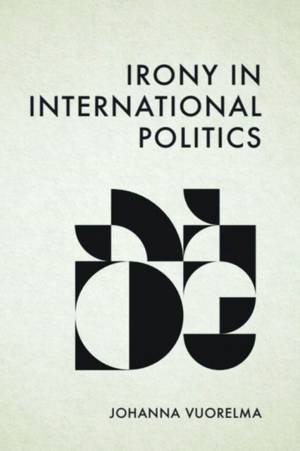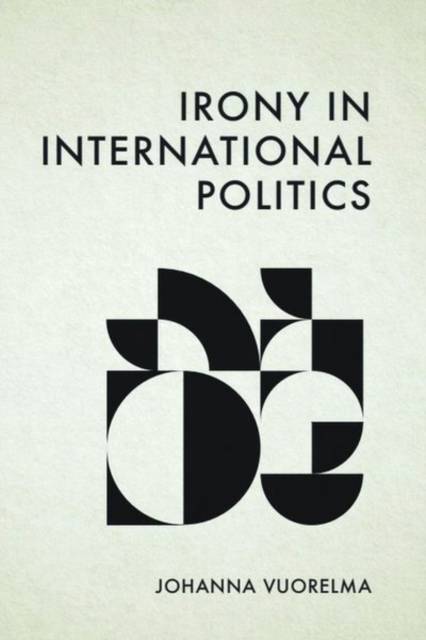
- Afhalen na 1 uur in een winkel met voorraad
- Gratis thuislevering in België vanaf € 30
- Ruim aanbod met 7 miljoen producten
- Afhalen na 1 uur in een winkel met voorraad
- Gratis thuislevering in België vanaf € 30
- Ruim aanbod met 7 miljoen producten
Zoeken
€ 185,45
+ 370 punten
Uitvoering
Omschrijving
Irony in International Politics investigates ironic language in international politics, focusing on how political leaders use irony to articulate failures of the liberal international order. Underlining the political, performative, and affective nature of irony in international politics, the book introduces a novel typology of four forms of irony: justice-seeking irony, hegemony-seeking irony, recognition-seeking irony, and disruption-seeking irony. Irony is typically understood as a tool of the underdog who seeks to reveal the hypocritical nature of the powerful, but Irony in International Politics shows that irony is increasingly used by the powerful who expose that there is a wide gap between the ideal and the actual in international politics. Studying cases from Turkey, the United Kingdom, Hungary, the United States, Sweden, Germany, Greece, and Russia, the book illustrates how the post-Cold War era represents a distinct scene of irony with its particular identity struggles and power asymmetries that have prompted ironic reactions.
Specificaties
Betrokkenen
- Auteur(s):
- Uitgeverij:
Inhoud
- Aantal bladzijden:
- 200
- Taal:
- Engels
Eigenschappen
- Productcode (EAN):
- 9781399531771
- Verschijningsdatum:
- 31/12/2024
- Uitvoering:
- Hardcover
- Formaat:
- Genaaid
- Afmetingen:
- 156 mm x 234 mm
- Gewicht:
- 458 g

Alleen bij Standaard Boekhandel
+ 370 punten op je klantenkaart van Standaard Boekhandel
Beoordelingen
We publiceren alleen reviews die voldoen aan de voorwaarden voor reviews. Bekijk onze voorwaarden voor reviews.







